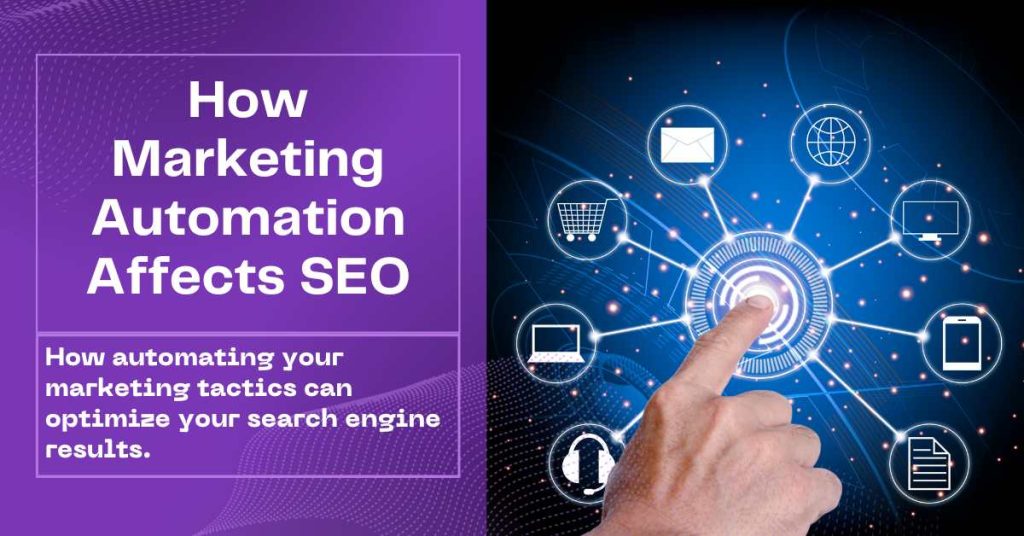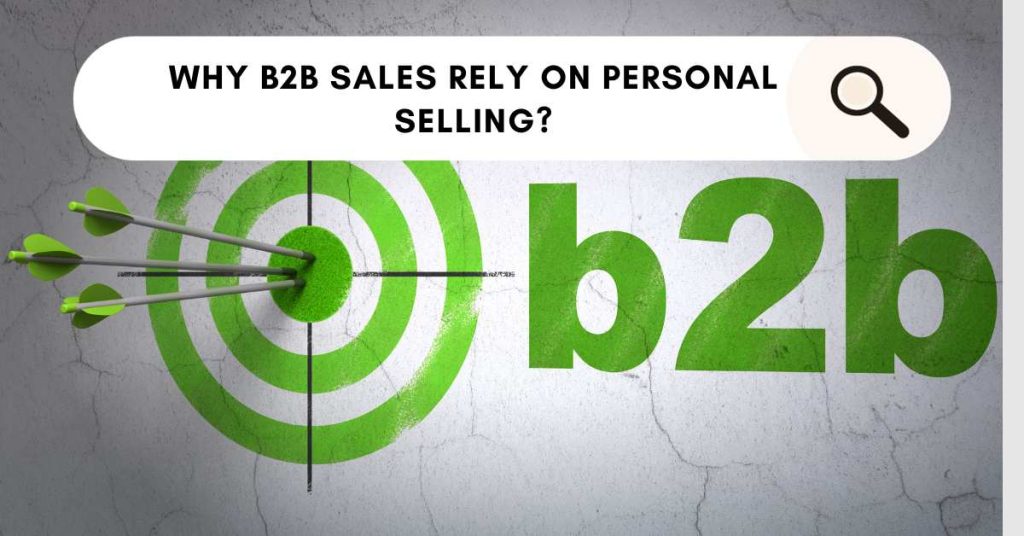Marketing automation platforms help manage and automate marketing tasks, including SEO activities. By automating repetitive tasks, marketing teams can focus on other areas of digital marketing to strategize and improve performance. Additionally, marketing automation can help track results and optimize campaigns for better ROI.
If you’re a marketer, there’s a good chance you’re using some form of marketing automation. And if you’re using marketing automation, there’s a good chance it’s affecting your SEO. How?
Well, let’s start with the basics: what is marketing automation? Marketing automation is the use of software to automate marketing tasks. This can include everything from email marketing to social media campaigns to targeted ads. And what does that have to do with SEO? A lot, actually.
Here are three ways marketing automation can affect your SEO:
Automated content can help with keyword research. When you create automated content (like blog posts or eBooks), you have the opportunity to do some serious keyword research.
You can find out which keywords are being searched for most often and then target those keywords in your content. This will help your content rank higher in search engine results pages (SERPs). Automated social media posts can boost your reach and engagement.
Table of Contents
Is SEO Part of Marketing Automation?
SEO is the practice of optimizing a website to rank higher in search engine results. Marketing automation is the use of software to automate marketing tasks, such as email marketing, social media campaigns, and targeted content. While SEO is a part of online marketing, it is not considered part of marketing automation.
The reason for this is that SEO requires ongoing manual effort in order to be effective, whereas marketing automation can be set up once and then left to run on its own.
What is Automation in SEO?
Automation in SEO is the process of using software to automate repetitive tasks associated with optimization campaigns. This can include tasks like keyword research, link building, and content creation. Automation can help improve efficiency and productivity when working on large-scale projects.
It can also help to eliminate human error and improve results. However, it is important to note that automation should not be used as a replacement for human expertise. There are certain tasks that still require a human touch in order to be executed properly.
How Does Automation Affect Marketing?
In recent years, marketing has become increasingly automated. As businesses have become more global and competitive, the need to automate marketing processes has grown. There are many benefits to automation, including increased efficiency, improved accuracy, and reduced costs.
However, there are also some potential drawbacks to consider. Automation can lead to a loss of personalization and human connection in marketing communications. It can also make it difficult to keep up with changes in the market or adapt to new customer needs.
Overall, automation can be a valuable tool for businesses that want to improve their marketing efficiency and effectiveness. When used correctly, it can help businesses save time and money while still delivering quality content and messages to their customers.
What are the Benefits of Marketing Automation?
Marketing automation is a tool that allows businesses to automate their marketing and sales processes. By automating these processes, businesses can save time and resources, while also improving their customer engagement and conversions. Some of the benefits of marketing automation include:
Improved Customer Engagement: Marketing automation can help you to better engage with your customers by sending them targeted content at the right time. This can improve customer satisfaction and loyalty.
Increased Sales: Automating your marketing and sales processes can help you to close more deals and increase revenue.
Reduced Costs: Automating your marketing and sales processes can save you time and money. By using marketing automation, you can eliminate manual tasks, such as data entry, emailing prospects, etc.
Marketing Automation SEO
In the world of digital marketing, SEO and marketing automation go hand-in-hand. After all, what’s the point of driving traffic to your website if you can’t convert it into leads and customers? That’s where marketing automation comes in.
By using software to automate your marketing tasks, you can free up time to focus on other areas of your business – like creating killer content or developing new products. And when it comes to SEO, there are a number of ways that marketing automation can help. Here are just a few:
1. Automated keyword research One of the most time-consuming aspects of SEO is keyword research. But with marketing automation, you can quickly and easily find the keywords that are most relevant to your business – and your customers.
2. Automated backlinking Backlinks are one of the most important ranking factors for SEO. But manually building backlinks is a huge time drain. Fortunately, there are a number of marketing automation tools that can help, like Linkody and BuzzSumo.
3. Automated reporting Keeping track of your SEO progress can be difficult – especially if you’re managing multiple websites or projects. But with marketing automation, you can get detailed reports on your progress over time, so you can see exactly what’s working (and what isn’t).
What is Marketing Automation
Marketing automation is the use of software to automate marketing processes such as customer segmentation, customer data management, and campaign management. The goal of marketing automation is to streamline, automate, and measure marketing tasks and workflows so that businesses can increase operational efficiency and grow revenue faster. In the past, marketing automation was mostly used by large enterprises because they had the resources necessary to invest in expensive software platforms.
However, with the advent of cloud-based solutions and SaaS platforms, marketing automation is now within reach of small and medium-sized businesses. Some popular marketing automation platforms include HubSpot, Marketo, Pardot, and Infusionsoft. These platforms offer a wide range of features that can be customized to fit the needs of any business.
For example, HubSpot offers a free CRM platform that includes basic marketing automation features such as email Marketing, lead capture forms, contact lists, and built-in analytics. Marketing automation can be used for a variety of tasks including lead nurturing, email campaigns, lead scoring, drip campaigns, social media monitoring and publishing, event management, website tracking, and much more. In short, it allows businesses to automate repetitive tasks so that they can focus on more strategic initiatives.
If you’re considering investing in marketing automation for your business, it’s important to do your research and choose a platform that will best meet your needs. Be sure to consider your budget as well as your specific goals for using marketing automation. With careful planning and execution, marketing automation can help you take your business to the next level!
Marketing Automation Examples
If you’re looking for some inspiration for your next marketing automation campaign, look no further! Here are four examples of effective marketing automation in action.
The Welcome Series
A welcome series is a great way to introduce new subscribers to your brand and build rapport from the get-go. This type of campaign typically consists of a few automated emails that are sent out over the course of a week or so, and each email contains valuable content and links back to your website.
The Engagement Campaign
Engagement campaigns are designed to keep subscribers involved with your brand after they’ve made a purchase or taken another desired action. These campaigns usually include a mix of educational content, special offers, and reminders about upcoming events or deadlines. Automated engagement campaigns can be highly effective in preventing customers from becoming disengaged or lapsed.
The Reactivation Campaign
Reactivation campaigns are sent to lapsed customers in an effort to win them back. These types of campaigns often offer significant discounts or other incentives for taking action, and they generally have high open and click-through rates as people are eager to take advantage of the deals being offered.
Reactivation campaigns can be very successful in getting customers interested in your brand again after they’ve been inactive for a while.
Seo Marketing Strategy
If you’re looking to get ahead of your competition, you need to start using SEO in your marketing strategy. Search Engine Optimization is the process of optimizing a website for Google’s search engine algorithms with the goal of earning higher web traffic levels and improving the visibility of the site. While there are many different aspects to SEO, some of the most important factors include choosing the right keywords, creating high-quality content, and building backlinks.
If you’re not sure where to start, our team of SEO experts can help! Here at [insert company name], we specialize in helping businesses like yours earn higher web traffic levels and improve their online visibility. Contact us today to learn more about our services and how we can help you take your business to the next level!
Conclusion
Marketing automation is a process that uses software to automate marketing tasks. It can help businesses save time and money by automating repetitive tasks, such as email marketing, social media posts, and targeted ads. However, some experts believe that marketing automation can also have a negative impact on SEO.
Some argue that too much automation can lead to low-quality content, since it may be generated by algorithms rather than human beings. Others believe that automated processes can take away from the personal touch that is necessary for successful SEO. In addition, some marketers believe that using marketing automation may make it more difficult to track results and ROI.

